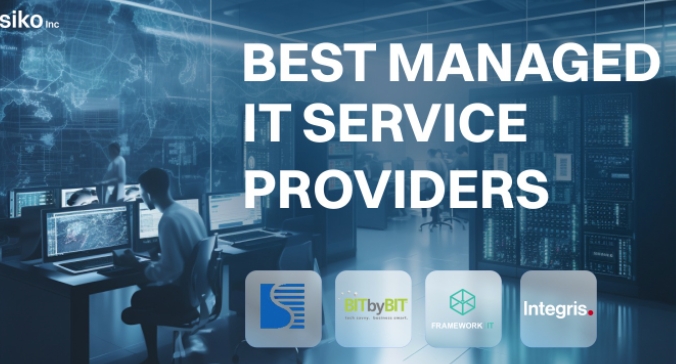
Here’s a comprehensive guide on choosing the best payroll services for small businesses.
1. Understand Your Business Needs
Before diving into the pool of payroll services, it’s essential to assess your company’s specific needs. Payroll services vary in terms of features, so identifying what your business requires is the first step.
- Employee Count: Small businesses may have anywhere from a handful to over a hundred employees. Some payroll services charge per employee or per payroll run, so knowing the number of employees you have will impact the service choice.
- Frequency of Payroll: How often do you pay your employees (weekly, bi-weekly, or monthly)? Some services might better suit businesses that run payroll more frequently, while others offer savings if you process payroll less often.
- Types of Workers: Do you have full-time employees, part-time workers, or freelancers? Some services offer tailored solutions for managing different categories of workers and their respective tax treatments.
2. Key Features to Consider
A good payroll service should offer more than just calculating wages. Here are some key features to look out for:
- Automated Payroll Processing: This feature ensures that employees are paid on time without the need for manual intervention. It should automatically calculate deductions, withholdings, and handle tax filings.
- Tax Filing Services: Payroll taxes are one of the most complex aspects of payroll management. A payroll service should calculate federal, state, and local payroll taxes, and file them on your behalf. Some services even offer tax penalty protection, ensuring you don’t face penalties if they make an error in tax filings.
- Direct Deposit and Payment Options: Most employees expect their paycheck to be deposited directly into their bank account. Choose a service that offers direct deposit, but also consider whether it provides options like check printing or payment via debit cards.
- Employee Self-Service: This allows employees to access their payroll information, such as pay stubs and W-2 forms, without constantly bothering the payroll administrator. Some platforms also allow employees to update their personal information or tax forms through a secure portal.
- Compliance and Reporting: Payroll laws are constantly changing. Ensure the service you choose is up-to-date with labor laws, overtime regulations, and tax laws. Additionally, the system should generate detailed reports for tax filing, benefits administration, and audits.
- Integration with Accounting Software: The best payroll services integrate seamlessly with your existing accounting software. This helps reduce errors and streamlines financial reporting, saving time when balancing the books.
3. Cost of Payroll Services
The cost of payroll services varies depending on the features offered and the size of your business. Common pricing models include:
- Flat Monthly Fee: Some services charge a base fee plus an additional fee per employee. This can be a good option for small businesses with a predictable number of employees.
- Per Payroll Run: Others charge per payroll cycle, which may be beneficial if you run payroll less frequently.
- Additional Charges: Some services may add fees for additional features like tax filing, year-end reports, or providing W-2 forms. Make sure to review the cost structure in detail to avoid hidden fees.
Balancing cost with features is crucial. While it may be tempting to go for the cheapest option, ensure that the service meets your business’s payroll needs. A slightly more expensive service may be worth the investment if it provides comprehensive tax filing or better customer support.
4. Customer Support and Service Reliability
A payroll system can be as good as its customer support. Since payroll errors can be stressful, having a responsive and knowledgeable support team can help you resolve issues quickly.
- 24/7 Support: Some payroll providers offer round-the-clock customer support, while others may have limited business hours.
- Dedicated Payroll Specialist: Some services assign a dedicated payroll specialist to your account, providing more personalized service and faster response times.
- Reputation and Reliability: It’s important to choose a reputable payroll provider. Reading reviews and asking for referrals from other small businesses can provide insights into how reliable a service is. A proven track record of timely payments and error-free processing is critical.
5. Mobile Access and Usability
In today’s digital age, many business owners and employees expect mobile-friendly solutions. A payroll service with a mobile app can allow you to manage payroll on the go. Whether it’s viewing pay stubs, running reports, or managing employee details, mobile access can add flexibility to payroll management.
6. Security
Handling payroll involves sensitive information, including employee bank details and social security numbers. Make sure the payroll service you choose has strong security measures in place. Look for features like encryption, two-factor authentication, and secure servers to protect data from breaches and fraud.
7. Scalability
As your business grows, so will your payroll needs. Choose a payroll service that can scale with your business, offering more features or capacity to handle increased employee counts without a major overhaul. A scalable payroll service will grow alongside your business, saving you the hassle of switching providers later.
Conclusion
Choosing the right payroll service is a significant decision for small business owners. The best payroll service is one that aligns with your business’s specific needs, offers essential features like tax filing and direct deposit, and fits your budget. By considering factors such as cost, features, customer support, security, and scalability, small business owners can streamline payroll management, minimize errors, and ensure their employees are paid correctly and on time.




